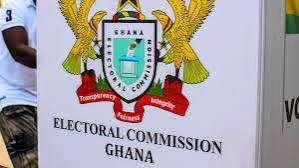**Ghana 2024 Elections: Key Issues, Candidates, and the Future**
Ghana’s upcoming general election, scheduled for December 7, 2024, is anticipated to be a pivotal event for the country. The elections will decide Ghana’s president, 275 members of parliament, and, potentially, the direction of economic, social, and political reforms. With a history of peaceful transitions and a strong democratic foundation, Ghana’s elections are closely watched across Africa as a model of democratic maturity. However, as issues like economic challenges, youth unemployment, and educational reforms dominate public discourse, the stakes for the 2024 elections are higher than ever.
The Key Contenders
The two main political forces in Ghana, the New Patriotic Party (NPP) and the National Democratic Congress (NDC), are expected to drive much of the electoral narrative. The NPP, currently in power under President Nana Akufo-Addo, has seen two terms and is now preparing for a succession race. The chosen NPP flagbearer, Vice President Dr. Mahamudu Bawumia, represents continuity but also potential reforms within the party's existing framework.
On the other hand, former President John Dramani Mahama will represent the NDC as he runs for a third time, following losses in 2016 and 2020. Mahama’s campaign has emphasized economic recovery, promising to address inflation and unemployment through measures aimed at supporting the youth and strengthening industries. His presence on the ballot indicates that the NDC is doubling down on its experience-led governance model, hoping to regain public trust through targeted economic and infrastructure policies.
While the NPP and NDC dominate the political scene, smaller parties such as the Ghana Union Movement (GUM) and the Progressive People’s Party (PPP) are expected to participate, primarily focusing on niche issues. These minor parties often influence the policy debates within the major party frameworks, serving as a reminder of Ghana’s multiparty democratic spirit.
Economic Issues Take Center Stage
At the heart of the election conversation is Ghana’s economy. The country has grappled with challenges in recent years, including rising inflation, a depreciating cedi, and debt obligations that have put strain on public services and development initiatives. The COVID-19 pandemic and global economic shifts have exacerbated these issues, impacting employment, purchasing power, and quality of life for many Ghanaians.
The NPP government has defended its economic track record by pointing to long-term initiatives in infrastructure, digitalization, and agricultural productivity, but critics argue that these projects have yet to translate into tangible benefits for everyday Ghanaians. Meanwhile, the NDC has presented a more immediate recovery plan, suggesting a strategic push to attract foreign investment and diversify Ghana’s export economy beyond gold and cocoa.
Youth unemployment remains a key economic topic. Both parties have pledged substantial investments in job creation initiatives, with a focus on sectors like technology, agriculture, and energy. The need to provide opportunities for Ghana’s youth, who make up a significant proportion of the voting population, is widely recognized as critical for stability and growth.
Education and Social Reform
Education and healthcare are also expected to be important areas of focus. The NPP has pointed to the Free Senior High School (SHS) policy as one of its proudest achievements, which has provided greater access to secondary education nationwide. However, critics claim that the program has faced challenges related to quality, funding, and infrastructure limitations.
The NDC has indicated it would review the Free SHS policy to improve quality and make it more sustainable, proposing reforms that could address current operational challenges. Additionally, the NDC aims to address healthcare gaps by enhancing the National Health Insurance Scheme and upgrading medical facilities to ensure quality healthcare access across the country.
Election Security and Public Trust
Ghana has a strong history of peaceful and transparent elections, but maintaining this reputation is a priority for 2024. The Electoral Commission of Ghana (EC) has announced measures to improve voting access, including plans for transparent vote-counting procedures, biometric verification, and enhanced security.
Civil society organizations and election monitors will play a vital role in ensuring free and fair elections, especially in the face of potential challenges like misinformation and political violence. Trust in the EC’s neutrality is critical, as any perceived bias could undermine confidence in the electoral process. Public discourse around transparency and fairness remains a focal point, as Ghanaians are keen to see their voices accurately reflected in election outcomes.
Looking Ahead
The 2024 elections will be crucial for determining Ghana’s trajectory in the coming years. For Ghanaians, the decision at the polls will shape the country’s economic, social, and political landscapes. Key issues around economic stability, job creation, educational reform, and healthcare access are expected to sway voters as they decide between continuity and change.
In a political environment where every vote matters, Ghanaians will be assessing which candidate and party best align with their vision for a prosperous, inclusive future. As Ghana approaches the 2024 elections, the nation’s commitment to democracy and development will once again be on display, reinforcing its role as a leader in African governance and stability.




No comments yet
Be the first to share your thoughts!